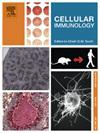雾化间充质干细胞衍生的外泌体减轻慢性阻塞性肺疾病大鼠模型的气道炎症
IF 2.9
4区 医学
Q2 CELL BIOLOGY
引用次数: 0
摘要
慢性阻塞性肺疾病(COPD)是世界范围内导致死亡的主要原因之一,目前的治疗方法未能显著阻止其进展。来自间充质干细胞(msc - exos)的外泌体由于其抗炎和再生的生物学特性,在治疗COPD方面显示出很大的潜力。在这项研究中,我们研究了骨髓间充质干细胞衍生外泌体(BMSCs-Exos)在COPD大鼠模型中的潜在抗炎作用,以及它们抑制气道重塑的可能机制,并确定了最佳剂量和给药途径。我们的研究结果表明,雾化BMSC-Exos可显著改善COPD大鼠的肺功能,同时减少肺部炎症浸润、支气管粘液分泌和胶原沉积。此外,BMSC-Exos处理显著降低血清、支气管肺泡灌洗液(BALF)和肺组织中促炎因子TNF-α、IL-6、IL-1β和促纤维化因子TGF-β1的表达。在低剂量的外泌体中观察到最显著的治疗效果。此外,定量实时PCR和免疫组织化学分析显示,雾化BMSC-Exos通过抑制Wnt/β-catenin信号通路,显著抑制气道重塑和上皮-间质转化(EMT)。综上所述,这些研究结果表明,雾化BMSC-Exos通过抑制香烟烟雾(CS)和脂多糖(LPS)诱导的大鼠Wnt/β-catenin通路异常激活,减轻肺部炎症和气道重塑,为慢性阻塞性肺疾病提供了一种无创治疗策略。本文章由计算机程序翻译,如有差异,请以英文原文为准。
Nebulized mesenchymal stem cell-derived exosomes attenuate airway inflammation in a rat model of chronic obstructive pulmonary disease
Chronic Obstructive Pulmonary Disease (COPD) is one of the leading causes of death worldwide, and current treatments fail to significantly halt its progression. Exosomes derived from mesenchymal stem cells (MSCs-Exos) have demonstrated promising potential in treating COPD due to their anti-inflammatory and regenerative biological properties. In this study, we investigated the potential anti-inflammatory effects of bone marrow mesenchymal stem cell-derived exosomes (BMSCs-Exos) in a COPD rat model and the possible mechanisms by which they inhibit airway remodeling, as well as identifying the optimal dosage and administration route. Our results show that nebulized BMSC-Exos significantly improve lung function in COPD rats while reducing pulmonary inflammatory infiltration, bronchial mucus secretion, and collagen deposition. Moreover, BMSC-Exos treatment notably decreased the expression of pro-inflammatory cytokines such as TNF-α, IL-6 and IL-1β, and the pro-fibrotic factor TGF-β1 in serum, bronchoalveolar lavage fluid (BALF), and lung tissue. The most pronounced therapeutic effect was observed at a low dose of exosomes. Furthermore, quantitative real-time PCR and immunohistochemical analyses revealed that nebulized BMSC-Exos significantly inhibited airway remodeling and epithelial–mesenchymal transition (EMT) by suppressing the Wnt/β-catenin signaling pathway. In conclusion, these findings indicate that nebulized BMSC-Exos offer a noninvasive therapeutic strategy for COPD by mitigating lung inflammation and airway remodeling through the suppression of abnormal Wnt/β-catenin pathway activation induced by cigarette smoke (CS) and lipopolysaccharide (LPS) in rats.
求助全文
通过发布文献求助,成功后即可免费获取论文全文。
去求助
来源期刊

Cellular immunology
生物-免疫学
CiteScore
8.20
自引率
2.30%
发文量
102
审稿时长
30 days
期刊介绍:
Cellular Immunology publishes original investigations concerned with the immunological activities of cells in experimental or clinical situations. The scope of the journal encompasses the broad area of in vitro and in vivo studies of cellular immune responses. Purely clinical descriptive studies are not considered.
Research Areas include:
• Antigen receptor sites
• Autoimmunity
• Delayed-type hypersensitivity or cellular immunity
• Immunologic deficiency states and their reconstitution
• Immunologic surveillance and tumor immunity
• Immunomodulation
• Immunotherapy
• Lymphokines and cytokines
• Nonantibody immunity
• Parasite immunology
• Resistance to intracellular microbial and viral infection
• Thymus and lymphocyte immunobiology
• Transplantation immunology
• Tumor immunity.
 求助内容:
求助内容: 应助结果提醒方式:
应助结果提醒方式:


